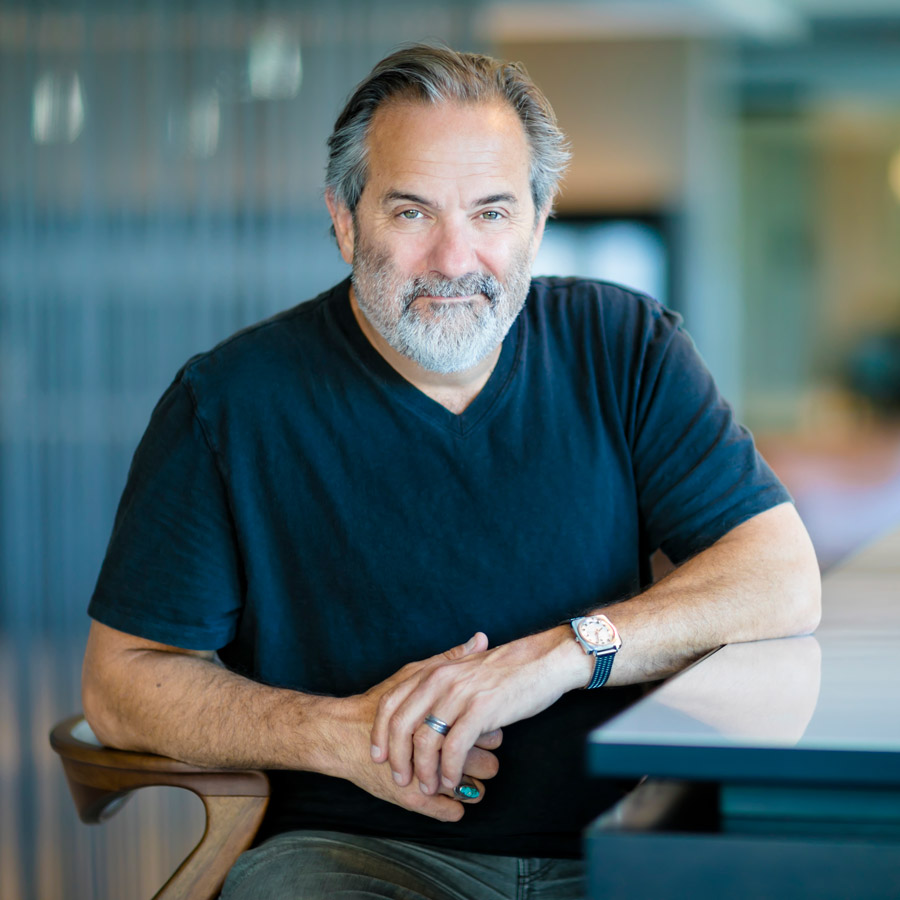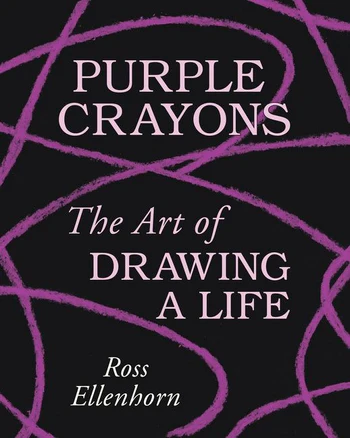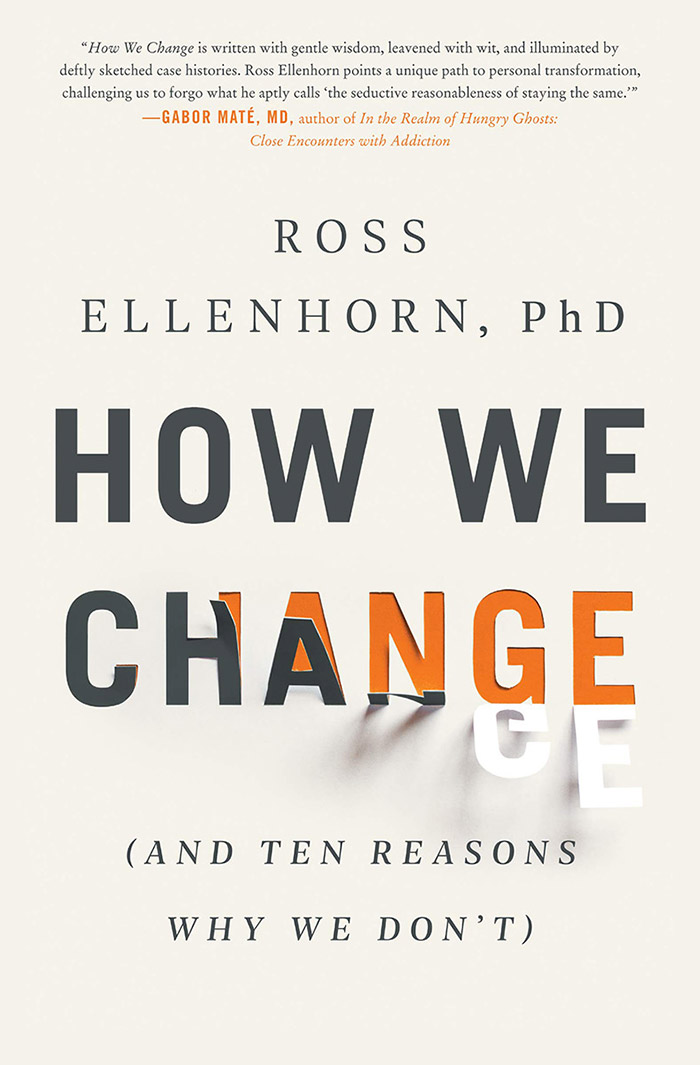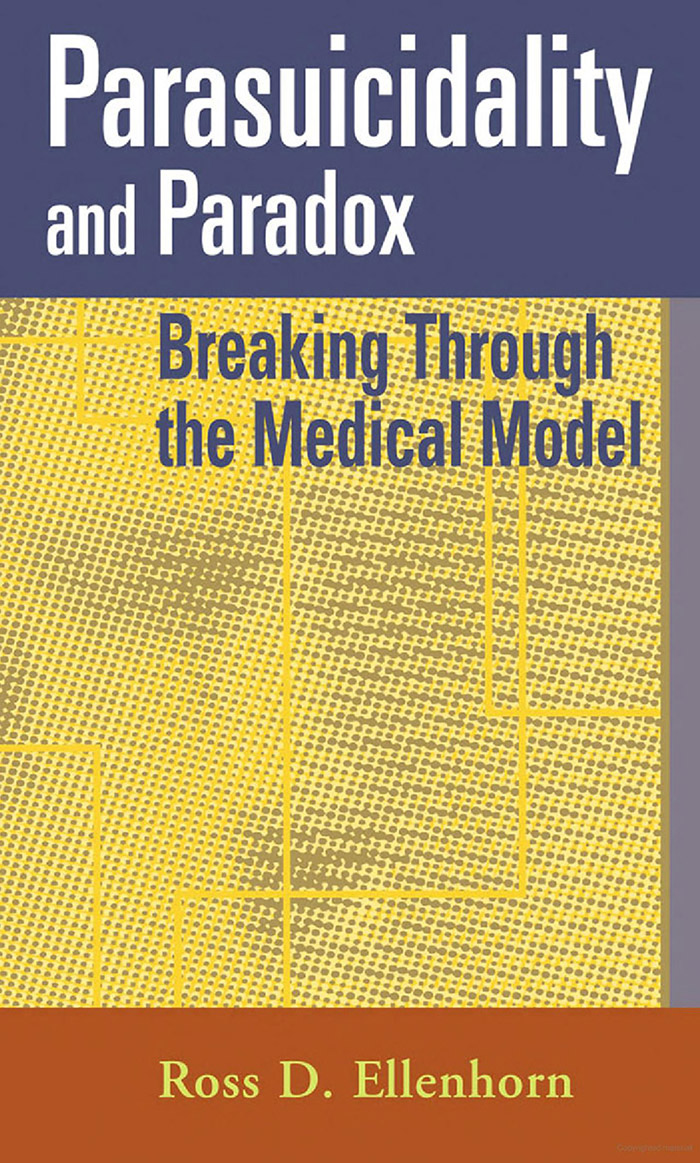Ross Ellenhorn
Dr. Ellenhorn is a pioneer and leader in the development and promotion of community integration services, types of care that serve and empower individuals diagnosed with psychiatric and/or addiction issues while they remain in their own communities and outside institutional settings.
Trained as a sociologist, psychotherapist and social worker, Ross Ellenhorn, Ph.D., created the first fully operational intensive hospital-diversion and wraparound program in Massachusetts, and went on to establish and lead one of the first public Programs for Assertive Community Treatment
teams in the state. He is the owner and CEO of Ellenhorn, the most robust community-integration program in the United States, which offers services outside of a hospital or residential setting for individuals experiencing addictive behaviors and/or extreme and complex states of mind and mood. Ellenhorn has offices in Boston, New York and Los Angeles.
Dr. Ellenhorn has authored three books on human behavior: “Parasuicidality and Paradox: Breaking Through the Medical Model” (Springer Publishing, 2007) addresses psychiatric hospital recidivism and techniques for diverting hospital use; “How We Change (and Ten Reasons Why We Don’t)” (HarperCollins Publishers, 2020) takes a deep dive into the dynamics that influence all human change; and “Purple Crayons: The Art of Drawing a Life,” (HarperCollins Publishers, 2022) addresses play as a central and vital human activity in our modern times. He has authored numerous articles, gives talks and seminars throughout the country, and provides consultation to mental health agencies, psychiatric hospitals and addiction programs.
Dr. Ellenhorn is the founder of the Shifting The Paradigm conferences, a bi‑annual series that addresses humanistic and empowering changes in behavioral healthcare. He is the executive producer of the film, Recovering Addiction: A Public Health Rescue Mission, a documentary on new, less‑oppressive means for understanding problematic substance use and other distressing habits.
Dr. Ellenhorn is the first person to receive a joint Ph.D. from Brandeis University’s prestigious Florence Heller School for Social Welfare Policy and Management and the Department of Sociology.

Purple Crayons
The Art of Drawing a Life
In this joyous and inventive rereading of the beloved children’s book Harold and the Purple Crayon, the author of How We Change (And Ten Reasons Why We Don’t) celebrates our inherent “sacred originality” and establishes a new framework for self-reliance.
In 1955 Crockett Johnson introduced one of the world’s most beloved and enduring young adventurers, Harold and his purple crayon. Today, we need Harold and his penchant for creative solutions more than ever. In Purple Crayons, Ross Ellenhorn looks to Johnson’s classic for insights and answers that can help us understand our current condition and point the way towards solutions for healing. Purple Crayons tells a story about America then and now, about living one’s life as art; about the powers that block us from doing so, about the pull and perils of conformity; about serious play and too much seriousness, about what it means to feel alive inside and what deadens our existence. It’s also about 1955 in America, all that lay before and—presciently—all that lay ahead, as each of us struggles to draw meaningful and resilient existences on the blank pages—the future yet unlived—of our lives.
This delightful, provocative adventure is a gift of kindness and love that encourages us and gives us hope. As he traces Harold’s journey, Ellenhorn offers insights into our “sacred originality”—the idea that each of our unique inner lives are worth nurturing and protecting, and the perseverance, courage, connection, and community necessary to sustain them. Engaging, thoughtful, wise—and illustrated throughout with drawings from the original Harold—Purple Crayons transcends the current divides separating us, reminding us that our fulfillment rests on tapping into what is original about ourselves, finding ways to express our originality, and understanding that doing so is rooted in who we are as Americans.
How We Change
(And Ten Reasons Why We Don't)
Gabor Maté on How We Change:
How We Change is written with gentle wisdom, leavened with wit and illuminated by deftly sketched case histories. Ross Ellenhorn points a unique path to personal transformation, challenging us to forego what he aptly calls “the seductive reasonableness of staying the same.”
A paradigm-shifting, instant classic in the making that challenges our assumptions about change by encouraging us to understand and embrace our resistance to it.
We all have something we want to change about ourselves. But whether it’s quitting smoking, losing weight, or breaking some common bad habit or negative behavior pattern, we feel a sense of failure when we don’t succeed. This often sets off a cascade of negative feelings and discouragement, making it even harder to change. The voice in our head tells us: Why bother?
Successful change depends far more on understanding why we don’t change, psychotherapist and sociologist Ross Ellenhorn insists. His decades-long career as a pioneer in helping people overcome extreme psychiatric experiences and problematic substance use issues—especially those whom the behavioral healthcare system has failed—especially those whom the mental healthcare system has failed—has lead him to develop an effective, long-term method to achieve transformation, from the simplest shifts to the most profound. In How We Change, Ellenhorn looks to the evolutionary imperatives driving us. We are wired to double down on the familiar because of what he calls the Fear of Hope—the act of protecting ourselves from further disappointment. He identifies the “10 Reasons Not to Change” to help us see why we behave the way we do, making it clear that there is nothing broken inside us—it’s how we’re built. By addressing this little known reality, he gives us hope and helps us work toward the change we seek.
Ellenhorn speaks to the core of our insecurities and fears about ourselves, with a humor and kindness. By turning our judgements about self-destructive behaviors into curious questions about them, he teaches us to think about our actions to discover what we truly want—even if we’re going about getting it in the wrong way. How We Change is a brilliant approach that will forever alter our perspective—and help us achieve the transformation we truly seek.
Parasuicidality and Paradox
Breaking Through the Medical Model
“This book describes parasuicidality from a different perspective, yet still within the framework of DBT. These concepts will be helpful to clinicians, who often spend much of their time dealing with these troubling behaviors. This book is well worth the price and the reader will not be disappointed.” Score: 94, 4 stars
—Doody’s
Ross Ellenhorn brings a fresh, new look at what has been called parasuicidality. Rather seeing it solely as a medicalized symptom of mental disorder, he incisively shows how threats of suicide emerge from the social context and can be better understood and treated within a framework of social relationships. This well documented and clearly written book is must reading for anyone interested in better understanding and dealing with parasuicidality.
“This book deals with the issue of parasuicidality using a dialectical behavior therapy (DBT) approach, but posits that clinical interactions aid and abet that specific behavior. It presents both theoretical and pragmatic ideas of how to deal with patients who often pose the greatest challenge to clinicians.” Gary B Kaniuk, Psy.D. (Cermak Health Services)
—Peter Conrad, Harry Coplan Professor of Social Sciences, Brandeis University, and author of The Medicalization of Society: On the Transformation of Human Conditions into Medical Disorders
In this unique and groundbreaking book, Dr. Ellenhorn offers a very different approach to assisting parasuicidal patients with their problems, an approach that avoids medicalized interactions while enhancing authentic encounters with patients. He makes extensive use of vignettes to demonstrate various types of scenarios between clinicians and patients. A number of other effective techniques are discussed, including:
- Ways to enhance team treatment planning through a brainstorming process called “The Hourglass
- Alternative methods of documenting treatment that serves to protect clinicians from concerns about liability
- Helping patients focus on life goals and changing themselves through clinician-patient interactions
Articles
The Two Types of Toughness Required for Success
Forge by Medium
The most successful way to make financial changes stick is one advice‑givers don’t talk about
MarketWatch
On the Role of “Adverse Adult Experience” in Co‑Occurring Disorders
The Fix
Assertive Community Treatment: A “Living-Systems” Alternative to Hospital and Residential Care
Psychiatric Annals
Parasuicidality and Patient Careerism: Treatment Recidivism and the Dialectics of Failure
American Journal of Orthopsychiatry
Ten Reasons Not to Change
Ellenhorn Blog
In the Media
Why Those Bad Lockdown Habits Feel So Damn Good
Refinery29
How to make the most of video therapy sessions during lockdown
Patient
The Borderline Personality Tangled in Turmoil
Psychology Today
Change Artists
Psychology Today
Paradigm Shifts in Addiction Treatment
FFI Practitioner
Podcasts and Radio Segments
Dr. Ross Ellenhorn on “Here and Now” Toronto
Here and Now Toronto with Gill Deacon on the Canadian Broadcast Company
How to Make Change in Life That Really Stick & The Dangers of Relying on Experts
Something You Should Know
Social Connectedness During a Global Crisis
Mental Horizons Podcast
Integrated Care Movement: Will You Join?
Rewired Radio
Why Don’t I Change?
Aubrey Marcus Podcast
The Fear of Hope
Mental Horizons Podcast
How We Change and Ten Reasons Why We Don’t
Messiah Community
Videos
How We Change
Parampara Family Business Institute
Integrated Dual Disorder Treatment and a Whole-Person Approach
Cape Cod Symposium on Addictive Disorders
Shifting The Addiction Paradigm 2022 Annual Shifting the Addiction Paradigm Conference
Curiosity Presentation 2022 Annual New Perspectives Series
Fear of Hope and the Ten Reasons not to Change
School of Becoming
Shifting the Addiction Paradigm
Annual Conference
Purpose: The Driving Force in Motivation, Efficiency, and Efficaciousness, Metabolizing Help and Building a Relationship with One’s Own Suffering
Annual Conference
The Serious Business of Play 2023 Ethos Thought Leadership Series
Dr. Ellenhorn’s Talks
Title: Disappointment and the Fear of Hope: From Theory to Research
Summary: The result of hoping and then experiencing deep disappointment can be a profound poisoning of hope. You recoil from hope, because hoping risks another disappointment. In this situation, hope appears tainted, so you stop hoping altogether.
Dr. Ross Ellenhorn calls this “Fear of Hope”. He joined a team at Rutgers University to study it, developing a Fear of Hope Scale, showing that fear of hope is a valid variable in people’s lives. In his talk he discusses this research, the theories behind it, and how they apply to the lives of individual diagnosed and treated for psychiatric and addiction issues.
Title: Ten Reasons Not To Change
Summary: You’re eager to make the change. You know all the ways the change will benefit you. You plan to make the change. And then…you don’t follow through.
That change does not happen is not due to the inherent weakness or laziness of human beings. The “how to” concept found in self-help books makes perfect sense when we apply it to fixing things, such as a leaky faucet. However, as we’ve learned from over a century of psychotherapeutic thought, change isn’t as superficial as learning skills or following steps.
“The 10 Reasons Not To Change” is a much-needed corrective and alternative to self-help materials offering the “secret” to making personal change, then leaving the reader unchanged. Dr. Ellenhorn offers an engaging, well-researched presentation that the audience will benefit from and enjoy.
Title: The Paradigm Shift in Addiction Treatment: Implications for Families and their Advisors
Summary: Cracks in the medical model of addiction are forming. And that’s a good thing. It means the chance for greater creativity, treatment choice, and freedom in decisions on what to do about substances in one’s life. It potentially means a decrease in stigma, and a much more nuanced view of the use of substances. It fractures a cookie-cutter approach to the use of substances and the engagement in other habits, allowing for care, if one wants it, to be truly individualized. We are heading towards a paradigm shift.
We can see the outlines of the next model, one based on psychotherapeutic values, a non-judgmental curiosity about why a person might engage in seemingly self-destructive behavior, a belief that a person is making the bests choices they can when they use, a total respect for the autonomy of the individual, and a firm belief that lasting change never happens through confrontation or coercion. This talk reviews both the ways in which the previous paradigm is shifting and how to locate the new forms of thinking.
Title: The Only Truth That Sticks: Distrust and the Complicated Path to Therapeutic Collaboration
Summary: Repeatedly, research on the therapeutic factors leading to change shows that the most effective therapeutic relationships are collaborative ones. Many individuals who enter treatment, however, do so either because they suffer from a basic distrust of the world, or out of compliance with the demands of others. For them, the very idea that we start treatment with a partnership seems suspect and dangerous. Try as we might to offer them the nutrients of a therapeutic alliance, they likely won’t metabolize what we offer.
Our talk examines the science of collaboration, therapeutic stances that promote a partnering relationships, and collaborative treatment tools.
Title: My Place in the Community: Building Supportive Integration for Mental Health Recovery
Summary: Mental health professionals have been trained in the benefits and limitation of inpatient and outpatient services that have provided the dominate settings for mental health care services for years. More recently Community Integration has emerged as an additional model of mental health care service that incorporates evidence-based therapies that engage patient centered care in the promotion of functional growth of people with mental health struggles.
This talk will inspire participants to engage in thinking and exploring how innovative programs and services can fill in the gap between traditional inpatient and outpatient care models.
Additionally, talk addresses the issue of stigma as reflected in mental health practice and in society at large, examining how community integration initiatives impact social and internal ostracism that can result in devastating isolation for persons with mental health struggles.
Title: Readiness” Is When the Client Says So: Integrated Dual Disorder Treatment and a whole-person approach
Summary: In this talk, Dr. Ellenhorn argues that the term “co-occurring” for simultaneous substance abuse and mental health issues is often a misnomer. In its place, he proposes a model in which the problem is actually tri-occurring, the third element in this triangle being, what he calls, psychosocial trauma. Through repeated attempts at treatment, the experience and internalization of stigma, and often a succession of personal problems caused by their psychiatric experiences, people diagnosed with psychiatric issues often lose hope in their future and doubt their own fortitude to face problems. With this in mind, addictions treatment for people who also suffer from psychiatric issues should aim for the triad of clinical, addiction and psychosocial recovery. In fact, Dr. Ellenhorn describes addictive behavior and psychosocial pain as the key relationship in this triad — seeing the loss of hope, connection, purpose and belief in a future caused by social losses as the overwhelming determinants in a person’s willingness to change.
Importantly, the Substance Abuse and Mental Health Services Administration (SAMHSA) agrees. Their proposed evidence-based best practice for co-occurring disorders is the Integrated Dual Disorder Treatment (IDDT) approach, a model that integrates psychosocial recovery goals as a central part of treatment, and views pursuing such goals as a kind of medicine for addiction, as opposed to goals to work toward once a person is well on their path to recovery. Thus, in this model, “readineess” is seen quite differently than in previous views. With a sufficiently strong community team around them, a person is ready to return to work, school and their communities when they say they are. As part of this talk, Dr. Ellenhorn describes the IDDT model, showing how it is an excellent means of addressing the triad of issues confronting people typically described as suffering co-occurring issues.
Title: Placing Grit in the Social Realm: Psychosocial Trauma and Its Effect on the Motivation of People Diagnosed and Treated as Mentally Ill
Summary: Most people agree that psychiatric patients are hurt by stigma, and that putting people in institutions can cause them harm. Much has been written about these problems, as social critics bemoan the dark side of mental health care. But these important observations often stop too short. Missing is the kind of deep examination we associate with medicine, one that looks for the site of the injuries, and how they occur. In this talk, Dr. Ellenhorn provides this much-needed examination.
Dr. Ellenhorn describes, both on a theoretical level and through numerous powerful true stories, the often-disabling impact of being labeled as suffering psychiatric symptoms and being treated for them. Just as the medical approach begins with where the problem occurs (the brain), what the problem looks like (for example, misfiring synapses or problems with dopamine), and then describes how the problem causes dysfunction (mood swings, hallucinations), this talk provides a model that shows where, what and how stigma and institutionalization injure people, causing symptoms often misinterpreted as stemming from the original psychiatric disorder.
Dr. Ellenhorn identifies the location of injury often caused by mental health treatment as the self, that difficult-to-find location not bound by the skull, but nonetheless real, and vital to living. Calling this injury psychosocial trauma, he shows how being identified and treated as a psychiatric patient disturbs a person’s social standing, sense of security among others, and core psychology. Psychosocial trauma, in other words, is multilayered, and Dr. Ellenhorn systematically illustrates its social, social- psychological and psychological effects. This multilayered trauma causes people to fear hope and dread human connection — the very nutrients of a meaningful existence. Social isolation and apathy are the what of this trauma. Psychosocially traumatized people live on the sidelines, disengaging from family, friends, work and school, and giving up on their dreams and future. Dr. Ellenhorn argues that psychosocial trauma affects a person’s willingness to actively move forward [not needed – understood, and adds density] as much as, or even more than do psychiatric symptoms.
Title: Shared Formulating and Decision-Making in Psychiatric Care
Summary: Shared decision-making (SDM) is an approach in medicine in which patients and doctors review evidence and data together to make decisions about the patient’s care. In this process, doctors work with patients to weigh the pros and cons of a given treatment approach, deliberating not only about physical health, but over such issues as personal autonomy, personal values and ethical/legal issues.
The use of shared decision-making, and the tools of SDM, are growing in the behavioral health professions. In this talk, Dr. Ellenhorn describes SDM as both a new, more helpful style of treatment planning, and as a type of treatment in itself. He reviews the different models and tools for SDM, and discusses their value in mental health treatment.
Videos
Integrated Dual Disorder Treatment and a Whole-Person Approach
Cape Cod Symposium on Addictive Disorders
The Spark of Opportunity in Attachment Theories on Addiction
Attachment and Addiction Conference
Shifting the Addiction Paradigm
Annual Conference
The Serious Business of Play
Ethos Thought Leadership Series
Contact Dr. Ellenhorn
For inquiries about lectures and speaking
engagements, please use the contact form below:



